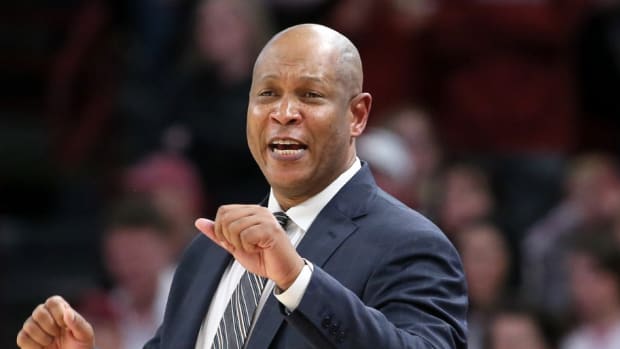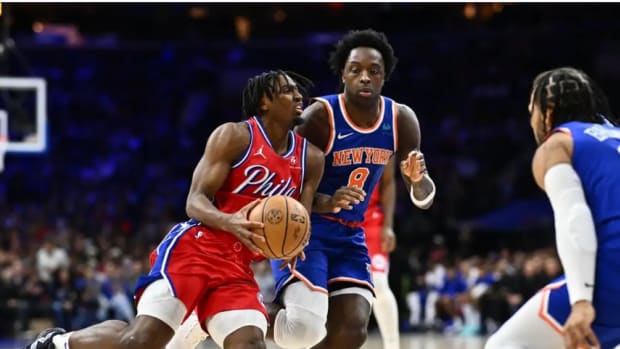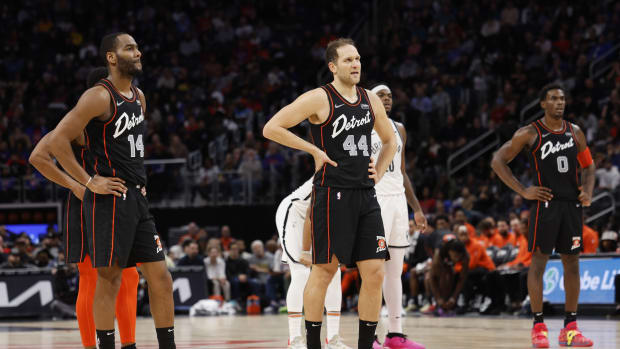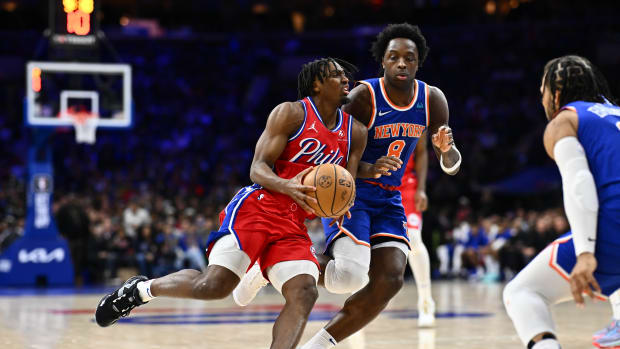The Decision, the Ripple Effects it Caused, and Those Still to Come
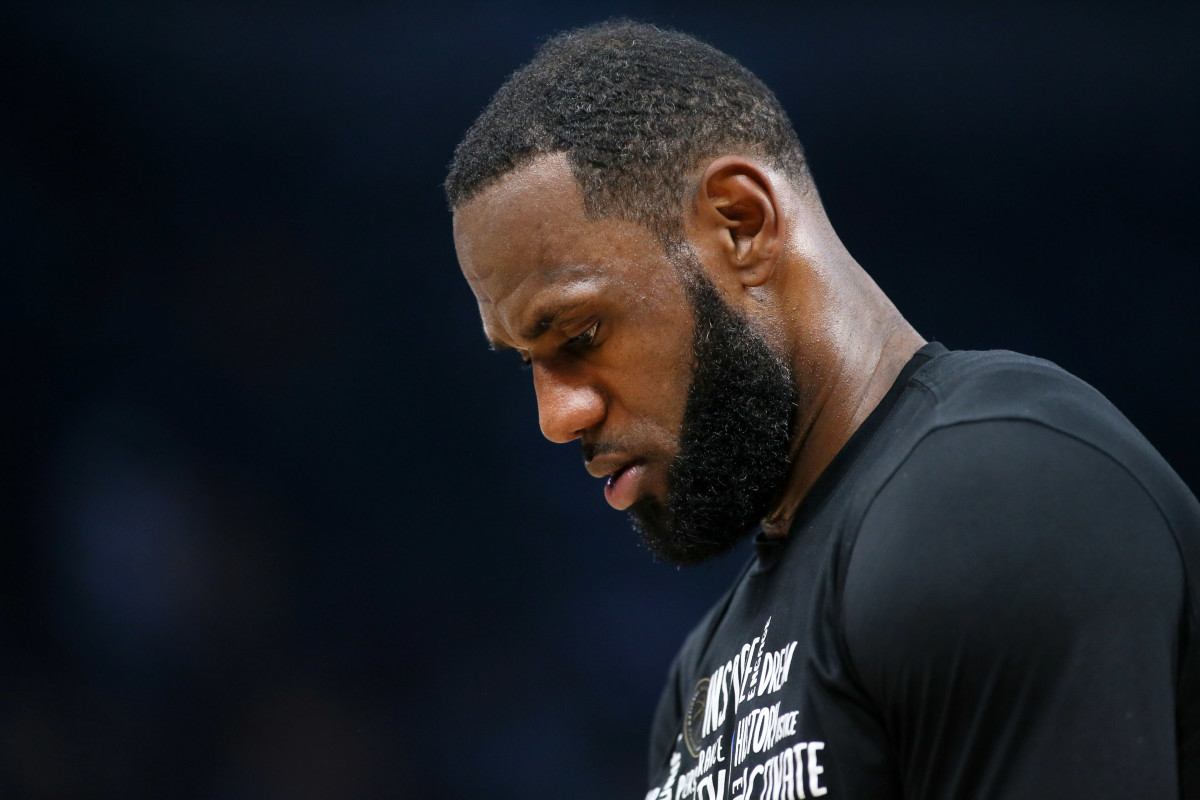
In the 10 years that have passed since LeBron James told the nation that he was taking his talents to South Beach, there has been no shortage of questions posed about both his decision and The Decision.
Did he truly usher in the era of super-teams? Is that the new normal? Or will it be a passing fad once this buddy/buddy generation of players has passed through? Did picking Miami actually serve a positive purpose for his career, as nothing is better than a good comeback story? If, on the other hand, he'd chosen to stay in Cleveland and Miami still signed Wade and Bosh, what would the next four years in the NBA have looked like? How many championships end up differently?
And of course, why, oh why, didn't he pick the Knicks?
(OK, maybe not that last one)
More than any of the above though, one thing I've been wondering as we approach the 10th birthday of the most famous PR faux pas in sports history is this: if the news of LeBron's choice to play for the Miami Heat had been broken on SportsCenter, or by the New York Times, or by carrier pigeon flown from Lake Erie to the Intracoastal - literally any method other than out of the King's mouth - would people have hated it, and by extension hated him, so damn much?
Let's even pretend Twitter wasn't in its infancy, and Brian Windhorst (then with the Cleveland Plain Dealer, and who did actually break the news two minutes before James uttered his infamous intention) tweeted out the exact same phrase to millions, in quotes, and attributed it directly to LeBron.
Even then, it's still hard to imagine the same caliber and volume of vitriol flowing as it did after (in no particular order) a needlessly excruciating 28 minute wait, James' massive level of discomfort, the smirk on his face as he said it and immediately following, Jim Gray's general smarminess, and of course, that godawful shirt:
But even considering all of the above, was any of that the real reason LeBron James instantly became perhaps the greatest villain the sports world has seen this century? Or was it, as many have posited, that he decided to have the audacity to take matters into his own hands and control the narrative (albeit poorly) as he wished?
In 2020 perhaps more than ever, it's also necessary to factor in the color of James' skin when having a conversation about our collective reactions a decade ago. We're living in an era, after all, where one can at once defend Drew Brees but blast LeBron James for using their platform to speak up and speak out. If a white player had done The Decision in exactly the same way, would he have been the target of fans' ire from Manhattan to Manhattan Beach and everywhere in between? Highly doubtful.
I was thinking of all of this over the last week as I observed and considered two separate and seemingly completely unrelated events, neither of which would have been conceivable pre-Decision, but which fit all too well in the media landscape as it now stands.
First, Steve Bulpett, considered perhaps the most revered and respected active NBA beat writer, was unceremoniously laid off by the Boston Herald as they, along with other newspapers and traditional media entities everywhere, continue to trim their payrolls.
Later in the same day, New York Knicks guard Damyean Dotson responded to a tweeted sound clip in which the hosts of the Hard Knicks Life Podcast had some unflattering things to say about him. He replied with some rather forceful retorts, garnering massive support amongst the team's fans:
That these two events occurred within hours of each other as we approached the 10-year mark of LeBron's game-changer serves as a not-so-subtle reminder of just how different things have become.
It's not that athletes couldn't have a major voice before LeBron took the stage at the Greenwich Boys & Girl's Club. Muhammad Ali is perhaps the most admired athlete of the 20th century, and he achieved that distinction largely by saying things that a whole lot of people had no desire to hear, let alone from the mouth of a Black Muslim.
But whenever people see old clips of Ali, the chances are they see Howard Cosell right alongside of him. If Ali wasn't positing his stance to Cosell, or one of the other sports personalities on network television back in the day, far fewer people would have known them at all.
The men who ran those networks let Ali have that audience because it benefited them as much as it empowered him. Had it not been for those in the real positions of power, the legend of Ali the activist would not be nearly as outsized as that of Ali the athlete.
Ali, it goes without saying, had no choice. What James realized before anyone else is that the balance of power had not only shifted, but had done so more drastically than anyone imagined. He tabbed Gray to do the interview, but it could have just as easily been anyone else. It was also mutually beneficial to both parties for ESPN to turn over their airwaves for that hour. Today, with the advancements in media, there would be a bidding war over such an event - if it were even up for grabs in the first place.
The reason it might not be is because players are taking their own narrative into their hands more than ever, and then disseminating those stories on outlets they hand pick. As ESPN's look back at The Decision noted, several prominent players are now co-producers on documentaries about their own legacies. That includes Michael Jordan, whose Last Dance will arguably go down as the cultural touchstone of sports programming for 2020.
In light of all this additional but highly curated access athletes are now allowing us to have, the question now becomes whether what we're gaining is as valuable as what is slowly dying as a result.
Which brings us back to Bulpett, and the diminished state of sports reporting that has only been worsening over the last 10 years. While the fact that athletes are increasingly comfortable cutting out the middle man isn't the only culprit responsible for this troubling state of affairs, to deny that it's one of the primary factors is ignoring the reality of what's happening.
And at first glance, there might be a temptation to ask how great a loss this really is. After all, on the surface, beat reporters and sports journalists give us the who, what, when, where, why and how of our favorite athletes, but much of those answers can now be gained simply by scrolling through their social media accounts or checking Twitter.
Take Dotson. For at least the last month, he's been in and out of Houston doing full runs with NBA guys and college players preparing for the draft. He also recently started a 2K league, has a beautiful bromance with Frank Ntilikina, recently came back to New York City to attend a Black Lives Matter event on Juneteenth, and he's mighty pissed that a couple of podcast hosts dragged his name through the mud.
The clap back he had against the HKL Pod last week made fans feel closer to Dotson, ever if ever so slightly. It's "They're just like us!" from Us Weekly, except the photographer no longer needs to hide in the bushes. People have become complacent in mistaking this level of access for insight - a parade that James started, albeit stumbling out of the gate.
Fans now spend as much time on their respective social media feeds as they once did reading game stories, and certainly more time than they used to spend curling up and diving into the type of long form pieces that once made this very publication the premier sports magazine in the world.
But lost in that trade-off is the type of stuff that you can only get from an old fashioned beat guy like Bulpett. Reporters like him know how to read the room after a big win or a tough loss and have the unique ability to not only put that feeling into words, but to connect the dots over the course of a long season. The best are able to create a unique tapestry with every season that real fans appreciate. There are no filters with that level of journalism; only the facts, presented in a way that deepens our appreciation for the sports we love.
As we continue to lose that, sports journalism will continue to become a lot like the country itself: an elite few at the very top who will likely always be secure in the profession - your Woj's, Shams', Zach Lowe's, Windy's and the like - and then everyone else is left fighting for the scraps.
With athletes now holding the cards, they tell their story how they want to, when they want to, and to and for whom they choose. And if your outlet doesn't want to present the story in the preferred way, why, there's certainly someone else who will. Good luck making up the difference.
Whether this situation was an inevitability or not, someone always needs to be the first to cross the bridge, and just as he is a player unlike we've ever seen before, LeBron James' decision to do The Decision was as monumental and landscape-altering a choice as any athlete has made in modern times.
Ironically, this is the one area where he and Ali are one in the same. Even though one spent his time protesting a war that stripped him of his title for four years while the other was merely announcing where his next four years would be spent playing basketball, the outspokenness of both men was about one thing and one thing only: power.
Michael Jordan may be the greatest professional athlete ever, but he never wielded the power that LeBron James now does. If he didn't want to go forward with this bubble, do you think there's a chance in the world it would be happening? He has made entire franchises kneel at his behest. He is, in every sense, the King.
And to think, we're only 10 years removed from a time when all of this was unfathomable, and players are still just scratching the surface of what they can do.
As their power grows, there will be more questions about the dangers of public relations-as-journalism, and every time a good reporter like Bulpett loses his job, those questions will only get louder, but with fewer and fewer voices raising them.
This isn't to say that player empowerment isn't as worthy a cause today as it ever was. It's a good thing that a player like Dotson can say his piece directly, and in the process, grow his own following. But there has to be a better way to maintain some semblance of what has been lost in the process. Sports, unlike politics, only feels like life and death, but the story of athletes and the games they play is still deserving of integrity. That, as much as the athletic feats themselves, is how legends are made - not from carefully choreographed decisions about an athlete's image that are cultivated by a team of people after the fact, but by expert storytellers without a skin in the game.
The hope is that consumers will start pushing back, and won't be content with tuning in to their weekly episode of A Day In The Life, featuring Bronny James as he navigates life during his first NBA season (produced by Uninterupted, coming to a YouTube channel near you).
(LeBron, if this show actually happens, I'd at least like a co-pro)
It's impossible to tell right now which way things will go. But for right now at least, there are only two things we can be sure of:
1. Whatever happens, we'll continue to look back at LeBron's Decision as the moment that the snowball started traveling down the hill, and...
2. Anger Damyean Dotson at your own risk.

